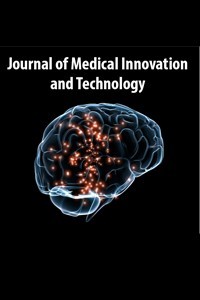Gelişimsel beyin durumlarını iyileştirmek için evde nörogeribildirim ve GFCF diyeti
EEG, nörogeribildirim, GFCF diet
Home Based Neurofeedback and GFCF Diet for İmproving Developmental Brain Conditions
EEG, neurofeedback, GFCF diet(Gluten free/casein free diet),
___
- 1. Eroğlu, Günet, Müjdat Çetin, and Selim Balcisoy. "Electroencephalographic identifiers of reading abilities in turkish language." 2018 26th Signal Processing and Communications Applications Conference (SIU). IEEE, 2018.
- 2. Eroğlu, Günet, et al. "Improving cognitive functions of dyslexies using multi-sensory learning and EEG neurofeedback." 2018 26th Signal Processing and Communications Applications Conference (SIU). IEEE, 2018.
- 3. Eroğlu, Günet, et al. "Nörogeribildirime kimin daha çok cevap vereceğini dinlenme anındaki EEG verisine bakarak öngörebilir miyiz?" TIPTEKNO 2018, 2018.
- 4. Rojas, Donald C., and Lisa B. Wilson. "γ-band abnormalities as markers of autism spectrum disorders." Biomarkers in medicine 8.3 (2014): 353-368.
- 5. Orekhova, Elena V., et al. "Excess of high frequency electroencephalogram oscillations in boys with autism." Biological psychiatry 62.9 (2007): 1022-1029.
- 6. Coury, Daniel L., et al. "Gastrointestinal conditions in children with autism spectrum disorder: developing a research agenda." Pediatrics 130.Supplement 2 (2012): S160-S168.
- 7. Cekici, Hande, and Nevin Sanlier. "Current nutritional approaches in managing autism spectrum disorder: A review." Nutritional neuroscience (2017): 1-11.
- 8. Campbell-McBride, Natasha. Gut and Psychology Syndrome: Natural Treatment for Autism, Dyspraxia, ADD, Dyslexia, ADHD, Depression, Schizophrenia. Medinform Pub., 2010.
- 9. McMAHON, DOREEN E. "Neurofeedback in an integrative medical practice." Restoring the Brain: Neurofeedback as an Integrative Approach to Health (2015): 95.
- 10. Cekici, Hande, and Nevin Sanlier. "Current nutritional approaches in managing autism spectrum disorder: A review." Nutritional neuroscience (2017): 1-11.
- 11. Marzbani, Hengameh, Hamid Reza Marateb, and Marjan Mansourian. "Neurofeedback: a comprehensive review on system design, methodology and clinical applications." Basic and clinical neuroscience 7.2 (2016): 143.
- 12. Sandgren, Anna M., and Robert JM Brummer. "ADHD-originating in the gut? The emergence of a new explanatory model." Medical hypotheses 120 (2018): 135-145.
- 13. Heinrich, Hartmut, Holger Gevensleben, and Ute Strehl. "Annotation: Neurofeedback–train your brain to train behaviour." Journal of Child Psychology and Psychiatry 48.1 (2007): 3-16.
- 14. Gnecchi, Jose Antonio Gutierrez, Julio Cesar Herrera Garcia, and Juan de Dios Ortiz Alvarado. "Auxiliary neurofeedback system for diagnostic of attention deficit hyperactivity disorder." Electronics, robotics and automotive mechanics conference, 2007. CERMA 2007. IEEE, 2007.
- 15. Breteler, Marinus HM, et al. "Improvements in spelling after QEEG-based neurofeedback in dyslexia: A randomized controlled treatment study." Applied psychophysiology and biofeedback 35.1 (2010): 5-11.
- 16. Nazari, Mohammad Ali, et al. "The effectiveness of neurofeedback training on EEG coherence and neuropsychological functions in children with reading disability." Clinical EEG and neuroscience 43.4 (2012): 315-322.
- 17. Breteler, Marinus HM, et al. "Improvements in spelling after QEEG-based neurofeedback in dyslexia: A randomized controlled treatment study." Applied psychophysiology and biofeedback 35.1 (2010): 5-11.
- 18. Au, Alma, et al. "Does it help to train attention in dyslexic children: pilot case studies with a ten-session neurofeedback program." International Journal on Disability and Human Development 13.1 (2014): 45-54.
- 19. Coben, Robert, Michael Linden, and Thomas E. Myers. "Neurofeedback for autistic spectrum disorder: a review of the literature." Applied psychophysiology and biofeedback 35.1 (2010): 83.
- 20. Oberman, Lindsay M., Vilayanur S. Ramachandran, and Jaime A. Pineda. "Modulation of mu suppression in children with autism spectrum disorders in response to familiar or unfamiliar stimuli: the mirror neuron hypothesis." Neuropsychologia 46.5 (2008): 1558-1565.
- 21. Katona, J., et al. "Evaluation of the NeuroSky MindFlex EEG headset brain waves data." Applied Machine Intelligence and Informatics (SAMI), 2014 IEEE 12th International Symposium on. IEEE, 2014.
- 22. Carrick, Frederick Robert, et al. "The treatment of autism spectrum disorder with auditory neurofeedback: A Randomized placebo controlled trial using the mente autism device." Frontiers in neurology 9 (2018): 537.
- ISSN: 2667-8977
- Başlangıç: 2019
- Yayıncı: Eskişehir Osmangazi Üniversitesi
Gelişimsel beyin durumlarını iyileştirmek için evde nörogeribildirim ve GFCF diyeti
Meryem Cansu ŞAHİN, İsmail KAYA, Nevin AYDIN, İlker Deniz CİNGÖZ, Hasan Emre AYDIN
Nöroşirurjide İmplant ve İmmünite
Ceren KIZMAZOĞLU, Hasan Emre AYDIN, Orhan KALEMCİ
Kraniosinostoz Cerrahisi ve Üç Boyutlu Baskı Teknolojisi Kullanımı
İlker Deniz CİNGÖZ, Salih KAVUNCU
Üç Boyutlu Yazıcı Yardımı ile Transfenoidal Hipofizektomi
Ali Osman MUÇUOĞLU, Muharrem Furkan YÜZBAŞI, Ege COŞKUN, R. Buğra HÜSEMOĞLU, Ercan ÖZER
3D Baskı Kullanarak Kişiye Özel Asetabular Labrum Kalıbı
R. Buğra HÜSEMOĞLU, Belma NALBANT, Mehmet DİLSİZ, Hasan HAVITÇIOĞLU
3 Boyutlu Yazıcı Teknolojisi İle Cerrahi Alet Üretimi; Mikro Disektör
İlker Deniz CİNGÖZ, Şafak ÖZYÖRÜK, Buğra HÜSEMOĞLU, Meryem Cansu ŞAHİN
